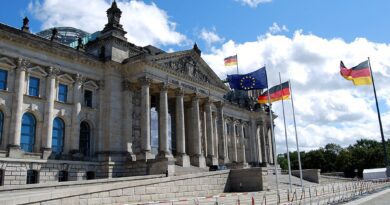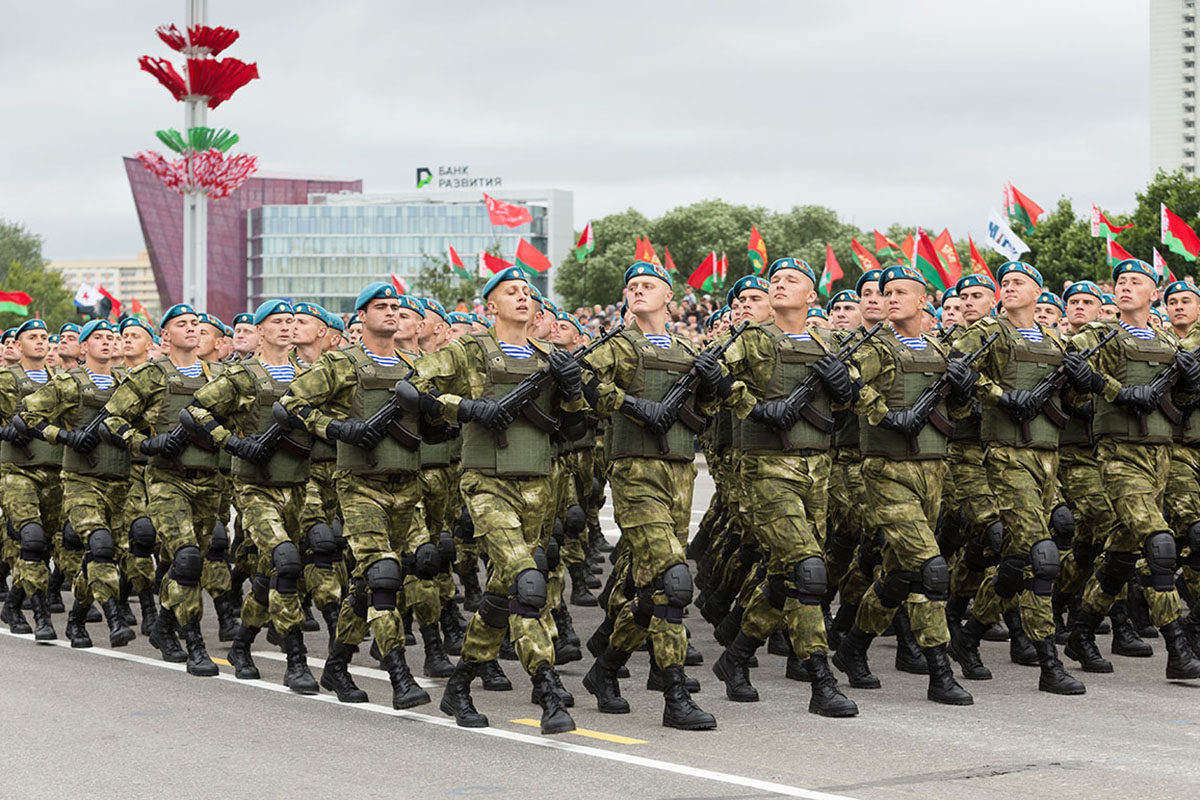Germany, Prussia and a policy of cohesion. From where did Berlin get the idea for today’s EU?
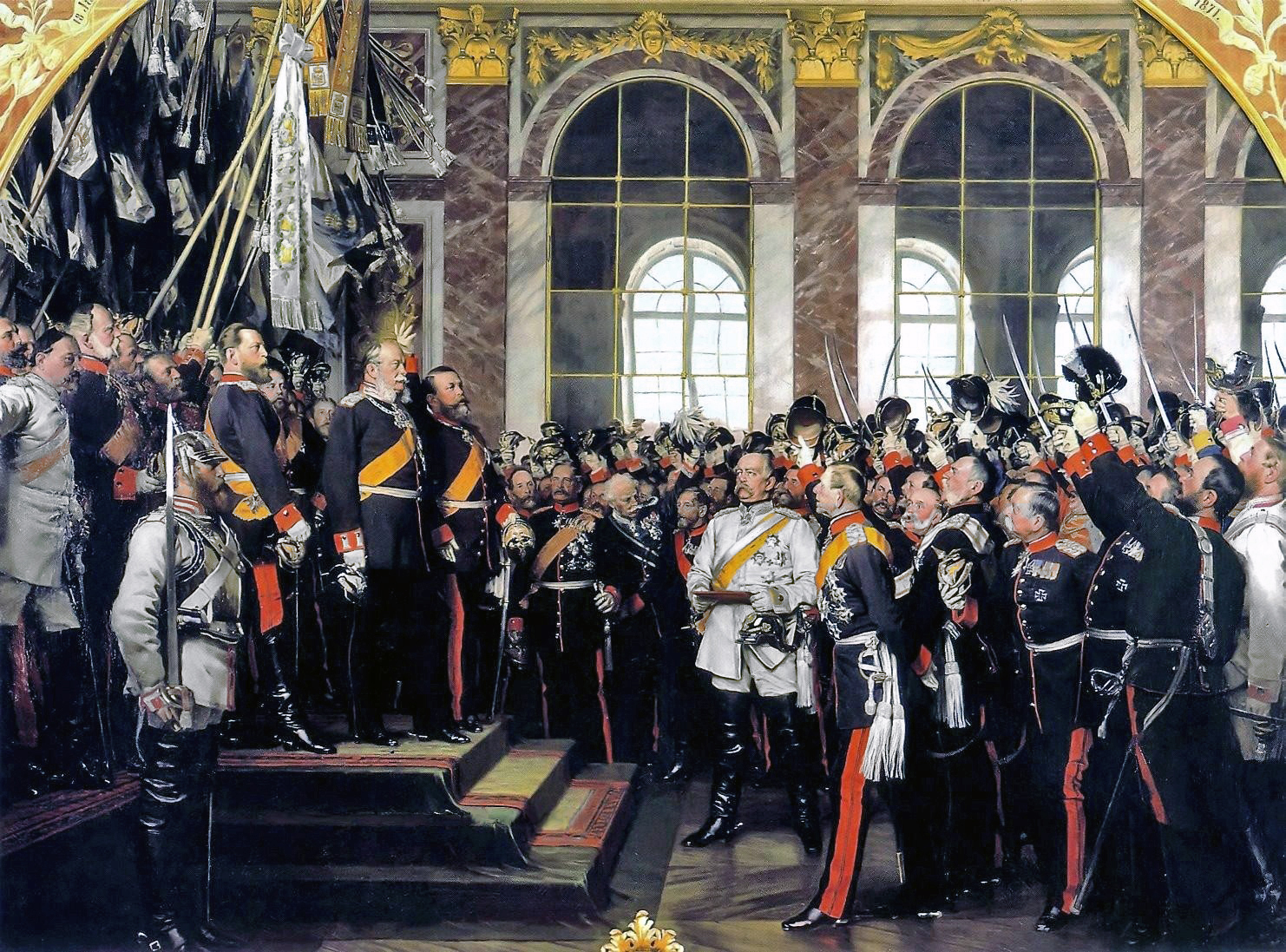
While writing a synthesis of the history of Prussia, it often came to me that the Hohenzollern state could be treated as a precursor to the EU. After all, the Prussian bureaucracy is nothing more than a prototype of a technocratic Brussels devoid of democratic legitimacy, which knows everything better than the rest.
Grzegorz Kucharczyk
The territorially diversified Prussia, stretching in the nineteenth century from Aachen to Klaipeda, having within its borders lands as diversified in terms of the level of economic development as industrialized Rhineland and Westphalia as well as the agricultural regions of Brandenburg and Pomerania, had to establish a policy of cohesion.
And it did. The “relief funds” flowed from Berlin in wide streams to the east, the “wild east” which needed to be civilized by an efficient bureaucracy. From 1886, for the next 30 years, an agency called the “Colonization Commission” dealt with the distribution of this “cohesion fund”, which, having an enormous budget for those times, made efforts to equalize the “development opportunities” between the industrialized west of the Hohenzollern monarchy and the still underinvested East, hungry not only for “relief funds”, but also for participation in the benefits of “higher culture”.
Weaning from “barbaric freedom”
Just like in our times, when Brussels (or any other capital beginning with the letter “B”) speaks through the mouths of MEPs and commissioners to the nations of Central Europe, recalcitrant Poles and Hungarians: “Come, children, I will teach you European values, and if you are not going to learn, then mama Brussels and papa Berlin will starve you a bit until you understand who brings you true culture”. The Prussian original was about the ethos of culture-trainers, clever students of Immanuel Kant, who, after the Partitions of Poland, proclaimed the great vocation of Prussia as a “state-educator” (Erziehungsstaat) to cleanse Poles of their “barbaric freedom”, which was the curse of this “unfortunate nation”. Prussian culture managers, as precursors of the preparation of Poles – the “fallen nation” (this are the words of Frederick Engels from a letter to Marx in 1851) – to participate in European values co-created by thinkers such as Kant, instead of cohesion, spoke of the need to create an “amalgam”, that is the “fusion” of Poles with other, indigenously German provinces of Prussia.
The Germanization of schools and public offices was meant to effect cohesion through “fusion”. There has already been talk of the “common agricultural policy” performed by the Prussian Colonization Commission. But this is not everything. They were present in various European capitals, Otto von Bismarck even claimed that the expansion of the railway network in the region of Greater Poland would have “cohesive” (read: Germanizing) value. Similar results were expected from the expansion of municipal infrastructure and public buildings (museums, theaters, operas) at the beginning of the 20th century in Poznań and in other cities of the Prussian Partition under the slogan of “cultural advancement of the East”. The Prussian precursor in the policy of sustainable development was also manifested in special additions (Ostmarkenzulage – the addition of the Saxon Eastern March”) for Prussian officials working in Polish lands, so as to encourage them to fulfill the honorable mission of “fusing” these areas with the rest of the monarchy.
A German Christian Democrat on Prussia
These were the sort of analogies that I created between Prussia and the European Union, but I did not dare to put them on paper. I got rid of my reluctance after reading the book entitled “What holds us together? Solutions for a society open to migration”. Until recently, author Peter Tauber (born 1974) was one of Angela Merkel’s closest associates. This is how one ought to read the fact that between 2013-2018 he was the secretary general of the CDU, and between 2018-2021 the parliamentary secretary of state in the German Ministry of Defense. For health reasons, Tauber withdrew from politics before the last parliamentary elections in Germany and dedicated himself to a career in science.
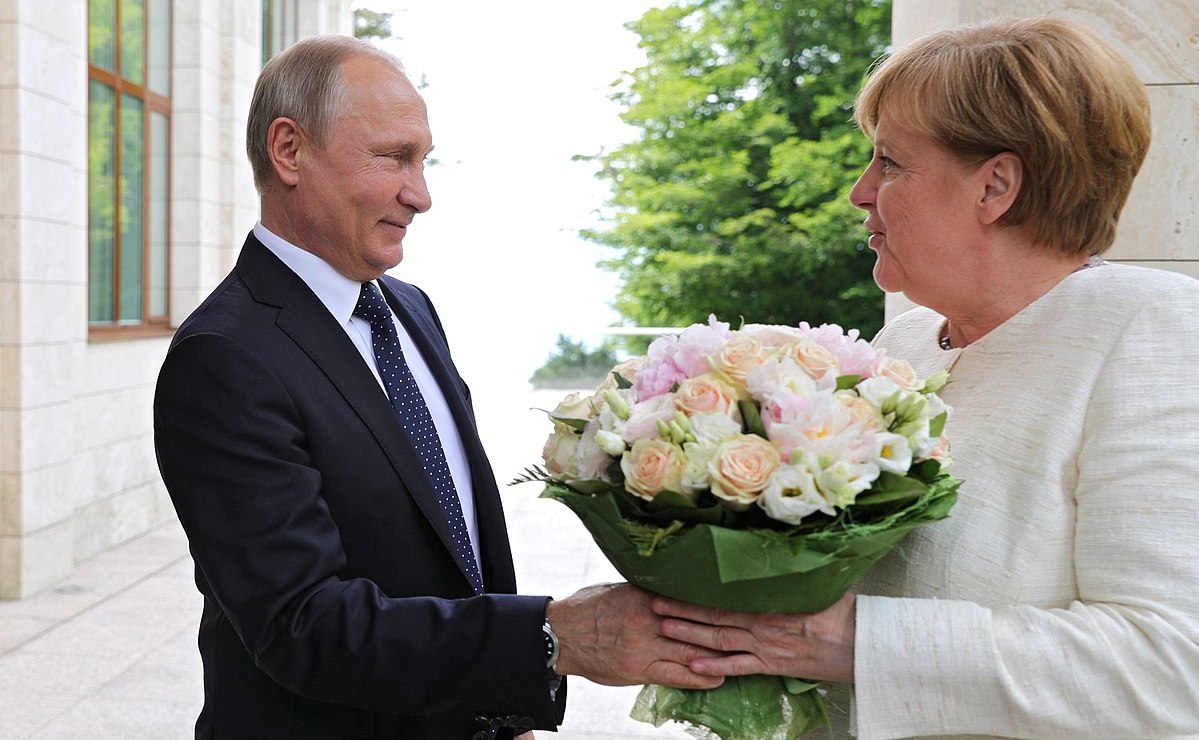
The title of the Christian Democrat’s book is a bit imprecise. The plural “solutions”, referring to the problems plaguing modern Germany, is confusing. Tauber proposes only one solution, and it is called Prussia. When I was reading the book of the former secretary general of the CDU, I got rid of the fear that my perception of Prussia as the precursor of the EU was too bold. A rather important, until not too long ago, German politician writes about Prussia as an “inclusive state”, whose motto became: “guarantees for the free development of its citizens”. This entitles us to say that the contemporary Bundesrepublika as a “state of reason” (Vernunftstaat) “is very similar to old Prussia, much more similar than we think”. Besides, Prussia “tis a reflection of the diversity of Europe”, and “Prussian kings thought in European terms much earlier, before they started to think in German”. Poles, Austrians, Danes, or the French could definitely respond to the idea of “European thinking” by the Hohenzollerns.
An example of all virtues
Before analyzing these “details” in the history of Prussia, which the author half-heartedly mentions as “certain dark sides of Prussian history”, let us introduce the method of justifying the role of the Hohenzollern state as a universal model for the political, economic, and migration problems of contemporary Germany by the Christian Democrat politician. Tauber begins with the apologia of Kant and Hegel as the philosophers who “invented” Prussia, accurately described their raison d’être, and not only laid the philosophical foundations for Prussian duty (the Kantian categorical imperative and the Hegelian apologia of the “rational state”), but also alongside Adenauer and Erhardt can be regarded as the founding fathers of the Bundesrepublic. Without Kant and Hegel – according to the Christian Democrat politician – “the Prussian sense of duty and insight as elements of the German national character are unthinkable”.
Peter Tauber’s book is enriched with quotes from Frederick II, Bismarck, and Helmuth von Moltke the Elder, quoted in the most affirmative tone. The former secretary general of the CDU sees Prussia as a source of good all around. “What kind of Prussia can be a model for us today?”, asks Tauber. And immediately he replies: “We owe a lot of what shapes us today to the Prussians”. Not only the philosophy of Kant and Hegel, but also municipal government, economic freedom, and a reasonable tax system. Prussia is a universal key for all countries (societies) that wanted and continue to want to follow the path of modernization: “This state, based on enlightenment and clear rules for administration, justice, and the army, was constructed in such a way that the rules that governed it could be applied everywhere”.
It was possible in the past. You can, and even should, draw a handful from Prussian experiences. In this context, Tauber points to the Hohenzollern monarchy as a prototype of a state and society open to immigrants (Einwanderungsgesellschaft). In this context, he reflects with appreciation on the opening of Prussian borders by the Great Elector (1640–1688) to the Huguenots after the revocation of the Edict of Nantes by Louis XIV (1685) and the adoption by Frederick William I of Protestants expelled from Salzburg. He recommends following the concept of Frederick II, who opened Prussian “migration offices” of sorts in Western Europe in order to recruit new subjects to his kingdom.
Poland? What Poland?
In this context, Tauber half-heartedly recalls that the Hohenzollerns always wanted to attract new taxpayers and new recruits (as well as the parents of future recruits). On the other hand, he strongly emphasizes the opinion that Prussia “was so wise a country that it introduced as much tolerance towards various religions as possible. In those days, it was an incredible and far-reaching step. […] In this way, Prussia in 18th century Europe was an advocate of freedom of religion and conscience of both its male and female citizens – on the one hand, and on the other hand – state [religious] tolerance, which deserves to be noticed”.
It is true that someone could say that from the 16th century, the Commonwealth was a “state without a stake”, that in the 17th century, when German countries were ravaged by the Thirty Years’ War (1618-1648), which arose out of religious quarrels, Poland hosted Protestant-Catholic “colloquia charitativa” (fraternal talks) – for instance in Toru ńin 1645; that in the 18th century, Tatars living in the Commonwealth were allowed to build new mosques without any problems. At the beginning of his book, Peter Tauber emphasizes that he only sees “the enlightened and liberal Prussia” as an important inspiration for contemporary German politics. When reading this publication, however, it is impossible not to get the impression that he only sees Prussia as that – “enlightened” and “liberal”.
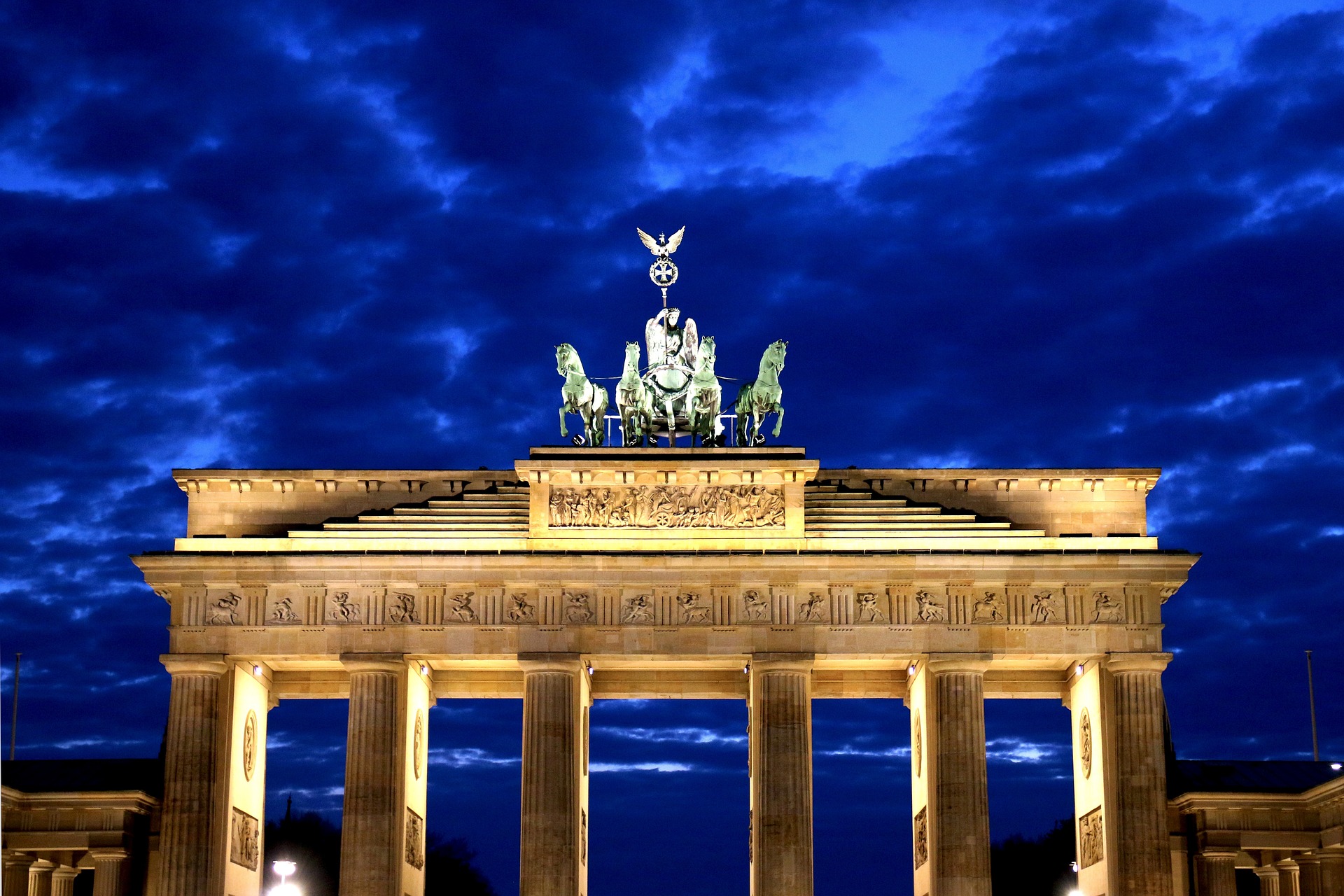
The apologia of the Hohenzollern monarchy is even easier to undertake if one only knows its history rather superficially. Like Peter Tauber, who is entangled by the Hohenzollerns. He does not know who was whose son, but he certainly knows that “the Prussian state was completely indifferent to the cultural identity of its inhabitants”, and that “Poles who entered its borders as a result of the Partitions of Poland, remained Poles”. Somehow, they succeeded. After all, they had it easy, because they fell under the rule of the most tolerant state in the whole of 18th century Europe (see above), “and the political goal of Germanizing Poles comes from the nationalist ideas of the Imperial Reich”.
Tauber knows nothing about the preparation of the “Prussian-Polish amalgam” in our lands by the Prussian authorities after 1795. He had not heard of Theodor von Schön, the head of the Prussian administration in Polish Pomerania after 1815, who had the ambition to make “Slavs and slaves free and German”. He forgot about Eduard Flottwell, the head of the Prussian administration in Greater Poland (1830 – 1840) who Germanized public offices and removed all Poles from the administration of the Grand Duchy of Poznań. He did not read about the eager votes of the Prussian liberals during the Spring of Nations for the principle of “healthy national egoism”, which ordered the Frankfurt parliament (1848) to adopt a resolution to include Polish lands within a future German Reich, united upstream (not through Prussian militarism).
The chapter on the challenges of contemporary German migration policy begins with Tauber with a quote from King Frederick II that “enriching a country with one inhabitant is worth more than expanding its borders”. It so happened that during the entire long reign of this Hohenzollern ruler (1740–1786), one and the other went hand in hand. The increase in the numbers of those subjected to the rule of Frederick II was not achieved thanks to the work of his “migration offices” in Amsterdam or London, but thanks to territorial gains (Silesia, Polish lands) made as a result of aggression directed at the countries neighboring Prussia. P. Tauber does not seem to see this at all.
In the footsteps of Bismarck and Rathenau
This, of course, is surprising and disturbing. The latter emotion grows dramatically after reading excerpts from the book devoted to the foreign policy of contemporary Germany. In this regard, the Christian Democrat politician demands that Germany take “greater responsibility for Europe”. As we know, all Hohenzollerns thought “European” to him. So is the faithful servant of the Prussian monarchy, Otto von Bismarck. On several occasions Tauber cites the words of the “iron chancellor” describing his role in Europe as “honest broker”. This is how Bismarck labeled himself on the eve of the 1878 Congress of Berlin in the aftermath of the recent Russo-Turkish War; a congress where the principle of “all about you without you” was in force (the Polish issue was not present at all at the Berlin congress; nor was this included in the portfolio of “honest brokers”).

German politicians striving to “take more responsibility for Europe” would do best to follow the example of the German Reich created by Bismarck in 1871. The point is not that Germany would dominate Europe like Prussia dominated in the imperial Reich, but after all – writes Tauber – “just like many people in Germany back then – not only the elite – agreed to the leading role of Prussia, and even wanted it imposed, so today in Europe the question is: “What will the Germans say?”. Whether we like it or not, others in Europe expect more responsibility from us, and you could even say – leadership”.
I do not know if Peter Tauber listened to the “Berlin tribute” of Minister Radek Sikorski, but the reference to the Bismarck Reich in an affirmative tone (otherwise condemned by the author for inciting nationalist ideas pushing such tolerant Prussia to Germanization of Poles) is quite significant in itself. Tauber’s reference to the figure of Walther Rathenau is just as significant, calling him “the last Prussian who stood against the nationalist” German Europe and who appealed to the European identity of the Germans. It is the same Rathenau who, as the head of the republican diplomacy of the German Reich, in 1922 concluded a pact with the Soviets in Rapallo, which, apart from its official goals (establishing diplomatic relations, economic cooperation), was aimed – as German politicians said – “to finish off Poland”.
From Spinelli to Bismarck
Peter Tauber ends his book with the words: “In this [modern] Germany there is still a whole lot of Prussia. And that’s good!”. Depends for whom. The voice of the former secretary general of the CDU is important because it is one of the elements of Prussian reconstruction in contemporary Germany. The final note of this policy was the opening of the Hohenzollern Royal Castle, which was rebuilt from the ground up in the center of Berlin this year as the Humboldt Forum, conceived as “a display window for world science and world culture”, writes Tauber. As you can see, “the sky is the limit” for Prussia. So maybe it is not Schuman or Spinelli who are in fact the founding fathers of a united Europe, but Frederick II and Bismarck?
This article was published in December 2021 in “Do Rzeczy” magazine”.

